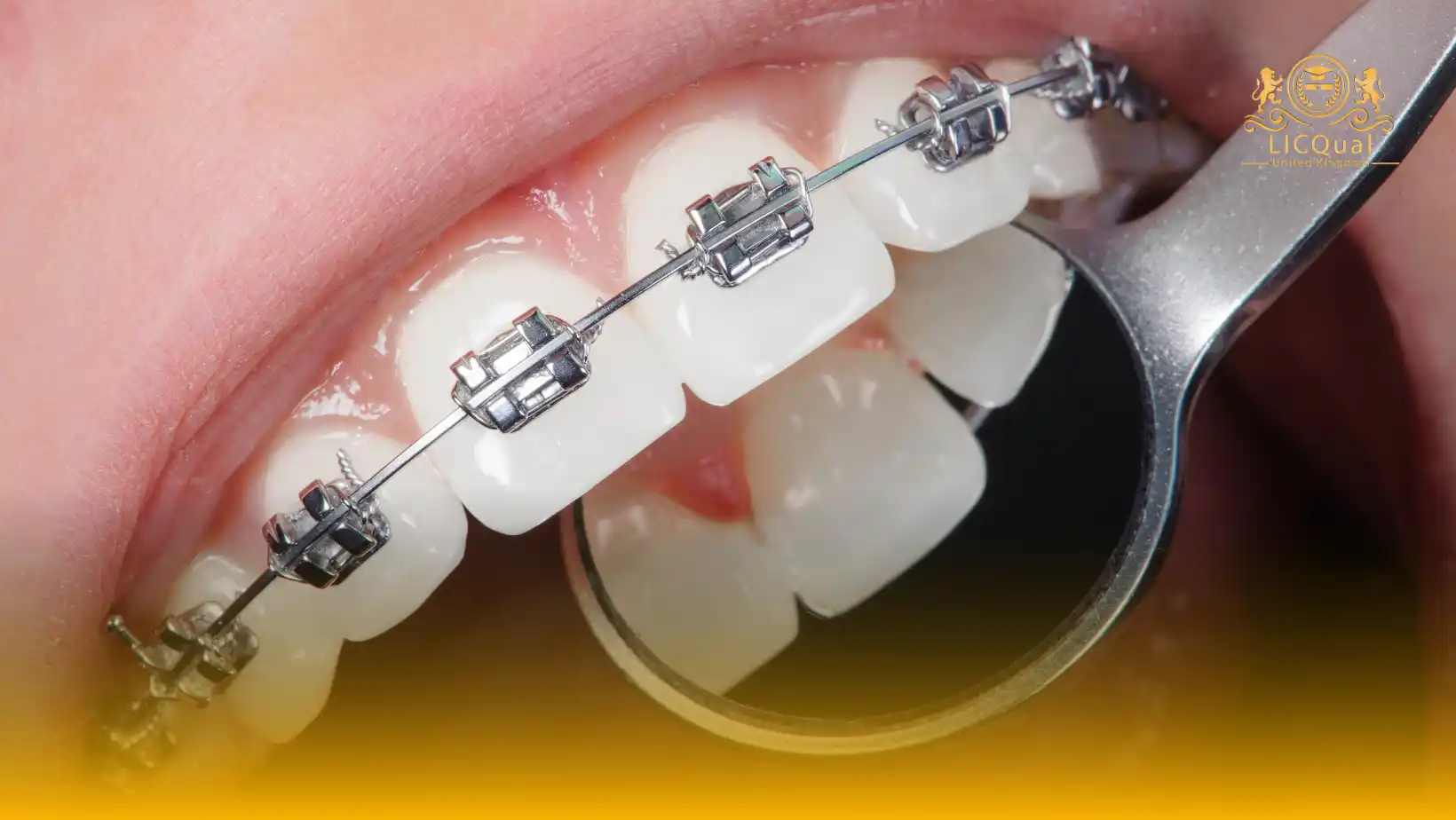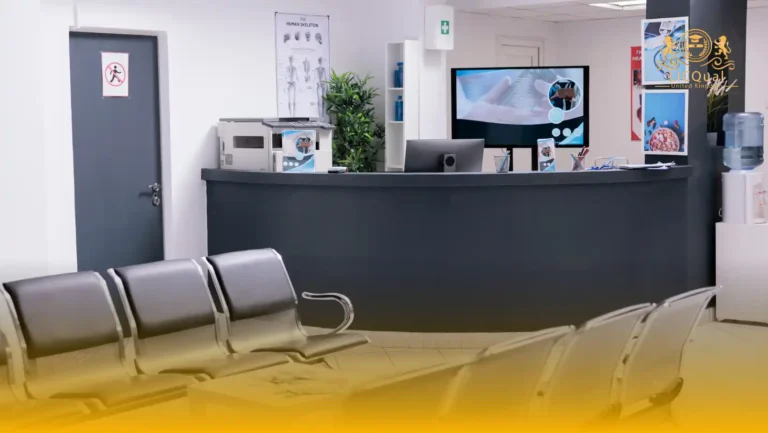The LICQual Level 6 Diploma in Orthodontics (Dip Orthodontics) is a highly specialised qualification designed for dental professionals seeking to advance their expertise in orthodontics. This qualification is not intended for fresh candidates; instead, it is tailored for practitioners who aim to enhance their career prospects, deepen their professional knowledge, and achieve significant Continuing Professional Development (CPD).
Learners undertaking this diploma will gain advanced insights into orthodontic principles, diagnostic procedures, treatment planning, and the latest techniques in patient care. The programme emphasises both theoretical understanding and practical application, enabling learners to confidently apply their knowledge in clinical practice.
Centres delivering the LICQual Level 6 Diploma in Orthodontics are required to maintain high standards of teaching excellence. This includes employing competent and qualified staff, providing all necessary materials and resources, and fostering a learning environment that promotes success. Such a framework ensures that learners receive the support and guidance needed to excel, achieving outcomes that align with international professional standards.
By completing this diploma, learners can significantly enhance their professional profile, demonstrate specialised orthodontic expertise, and strengthen their role within the dental industry. Whether aiming for career progression, advanced clinical practice, or the enhancement of CPD portfolios, this qualification provides a structured and rigorous pathway for committed dental professionals.
Course Overview
Qualification Title
LICQual Level 6 Diploma in Orthodontics (Dip Orthodontics)
Total Units
6
Total Credits
120
GLH
480
Qualification #
LICQ2200671
Qualification Specification
To enroll in the LICQual Level 6 Diploma in Orthodontics (Dip Orthodontics), applicants must meet the following criteria:
|
Qualification# |
Unit Title |
Credits |
GLH |
|---|---|---|---|
|
LICQ2200671-1 |
Advanced Orthodontic Principles |
20 |
80 |
|
LICQ2200671-2 |
Clinical Assessment and Diagnosis |
20 |
80 |
|
LICQ2200671-3 |
Orthodontic Treatment Techniques |
20 |
80 |
|
LICQ2200671-4 |
Patient Management and Professional Ethics |
20 |
80 |
|
LICQ2200671-5 |
Research Methods in Orthodontics |
20 |
80 |
|
LICQ2200671-6 |
Advanced Clinical Practice and Case Management |
20 |
80 |
By the end of this course, learners will be able to:
Unit 1: Advanced Orthodontic Principles
By the end of this unit, learners will be able to:
- Demonstrate an advanced understanding of craniofacial growth and dental development.
- Identify and classify different types of malocclusion.
- Analyse occlusal relationships and their impact on treatment planning.
- Apply advanced orthodontic principles to formulate preliminary treatment strategies.
Unit 2: Clinical Assessment and Diagnosis
By the end of this unit, learners will be able to:
- Conduct comprehensive patient assessments, including clinical examinations and diagnostic records.
- Interpret radiographs and cephalometric analyses to inform treatment decisions.
- Develop accurate and evidence-based orthodontic treatment plans.
- Recognise and manage complex diagnostic cases.
Unit 3: Orthodontic Treatment Techniques
By the end of this unit, learners will be able to:
- Demonstrate knowledge of fixed and removable appliance systems, including aligners.
- Apply advanced clinical techniques in orthodontic treatment.
- Evaluate treatment options based on patient-specific needs and clinical evidence.
- Adapt treatment approaches to manage complications effectively.
Unit 4: Patient Management and Professional Ethics
By the end of this unit, learners will be able to:
- Communicate effectively with patients and caregivers regarding treatment options and outcomes.
- Obtain valid informed consent and maintain patient confidentiality.
- Apply ethical principles and professional standards in orthodontic practice.
- Manage patients with special needs or complex clinical requirements.
Unit 5: Research Methods in Orthodontics
By the end of this unit, learners will be able to:
- Critically appraise orthodontic research and scientific literature.
- Apply evidence-based principles to clinical practice.
- Design and conduct clinical audits or small-scale research projects.
- Integrate research findings into decision-making and treatment evaluation.
Unit 6: Advanced Clinical Practice and Case Management
By the end of this unit, learners will be able to:
- Plan and implement treatment for complex orthodontic cases under supervision.
- Evaluate treatment outcomes and adjust strategies as necessary.
- Reflect critically on clinical practice to enhance professional development.
- Demonstrate competency in advanced case management, ensuring patient safety and satisfaction.
The LICQual Level 6 Diploma in Orthodontics (Dip Orthodontics) is designed for dentists, dental specialists, and oral healthcare professionals who want to expand their expertise in modern orthodontic treatments, aesthetic dental solutions, and patient-centered care. This course is ideal for practitioners seeking advanced clinical skills, internationally recognized credentials, and career growth. Whether you are a practicing dentist, a specialist, or an early-career professional, this diploma equips you with the knowledge and practical skills to confidently manage complex orthodontic cases.
1. Practicing Dentists Seeking Orthodontic Specialization
- Designed for licensed dentists aiming to expand clinical services.
- Provides training in diagnosis, treatment planning, and malocclusion management.
- Enhances skills in braces, aligners, and contemporary orthodontic techniques.
- Strengthens ability to deliver aesthetically and functionally optimal outcomes.
- Offers internationally recognized credentials to boost career opportunities.
2. Dental Specialists
- Ideal for orthodontists, prosthodontists, and restorative dentists.
- Focuses on integrating advanced orthodontic solutions into specialized practice.
- Builds expertise in managing complex malocclusions and craniofacial growth issues.
- Enhances precision in aesthetic and functional dental outcomes.
- Prepares specialists to lead multidisciplinary clinical teams effectively.
3. Early-Career Dental Graduates
- Suitable for recent BDS, DDS, or equivalent graduates seeking orthodontic expertise.
- Provides foundational knowledge in clinical orthodontics and treatment planning.
- Prepares learners for advanced clinical and academic roles.
- Encourages evidence-based practice in aesthetic and functional orthodontics.
- Increases employability in modern, orthodontically-focused dental practices.
4. International Dental Professionals
- Tailored for practitioners seeking UK-accredited orthodontics qualifications.
- Offers flexible online learning accessible worldwide.
- Aligns with international standards in orthodontic diagnosis and therapy.
- Enhances global recognition and professional mobility.
- Provides practical guidance for modern clinical orthodontic techniques.
5. Dental Educators and Academic Professional
- Designed for lecturers and trainers updating curriculum on orthodontics.
- Incorporates evidence-based techniques for teaching advanced orthodontic procedures.
- Supports academic leadership and research in dental aesthetics and occlusion.
- Enhances credibility as an expert in modern orthodontic education.
- Provides opportunities for case studies and clinical research contributions.
6. Clinic Owners and Practice Managers
- Helps dental practice owners expand services into orthodontic care.
- Provides strategies for implementing efficient orthodontic workflows.
- Strengthens team supervision and patient management protocols.
- Enhances patient satisfaction through aesthetic and functional treatments.
- Promotes practice growth by offering advanced orthodontic solutions.
7. Career-Oriented Dental Professionals Seeking Recognition
- Ideal for professionals aiming for internationally recognized orthodontics credentials.
- Enhances clinical expertise and professional credibility in orthodontics.
- Opens pathways to advanced clinical, consultancy, or academic roles.
- Provides a career-boosting foundation in modern orthodontic techniques.
- Equips professionals to excel in multidisciplinary dental and healthcare environments.
To ensure high-quality delivery and learner success, centres offering the LICQual Level 6 Diploma in Orthodontics must meet the following requirements:
- Qualified and Competent Staff: Centres must employ experienced dental professionals with recognised orthodontic qualifications and teaching experience to deliver both theoretical and practical components.
- Clinical Facilities: Learners must have access to a fully equipped dental clinic or practice with appropriate orthodontic instruments, materials, and treatment technologies.
- Learning Resources: Centres should provide comprehensive learning resources, including textbooks, digital materials, case studies, and access to current research in orthodontics.
- Assessment and Quality Assurance: Centres must implement robust assessment procedures, quality assurance systems, and regular monitoring to ensure academic standards are maintained.
- Health and Safety Compliance: All clinical environments must adhere to UK health and safety regulations, infection control standards, and professional clinical guidelines.
- Supportive Learning Environment: Centres should offer guidance, supervision, and mentoring to ensure learners achieve the intended learning outcomes.
- CPD and Professional Development Support: Centres should encourage continuous professional development for both staff and learners to maintain high standards in orthodontic education.
By meeting these requirements, centres can deliver a high-quality, internationally recognised orthodontics qualification, ensuring learners gain the advanced skills, knowledge, and professional competencies needed for successful career progression.
Assessment and Verification
All units within this qualification are subject to internal assessment by the approved centre and external verification by LICQual. The qualification follows a criterion-referenced assessment approach, ensuring that learners meet all specified learning outcomes.
To achieve a ‘Pass’ in any unit, learners must provide valid, sufficient, and authentic evidence demonstrating their attainment of all learning outcomes and compliance with the prescribed assessment criteria. The Assessor is responsible for evaluating the evidence and determining whether the learner has successfully met the required standards.
Assessors must maintain a clear and comprehensive audit trail, documenting the basis for their assessment decisions to ensure transparency, consistency, and compliance with quality assurance requirements.







